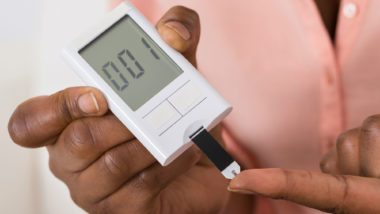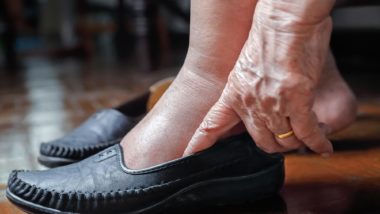Top Class Actions’s website and social media posts use affiliate links. If you make a purchase using such links, we may receive a commission, but it will not result in any additional charges to you. Please review our Affiliate Link Disclosure for more information.
In 2011, health officials in France and Germany took Actos off the marketdue to concerns about the drug’s link with bladder cancer.
The French Medicines Agency conducted an inquiry, which found similar results as a well known U.S. Food and Drug Administration (FDA) clinical study investigating the nexus between Actos and bladder cancer.
With rising concerns over Actos and bladder cancer, here are some questions patients may be curious about:
What is Actos?
Actos (pioglitazone) is a popular type-2 diabetes drug that works by decreasing the amount of glucose released by the liver. However, this medication needs to be used in conjunction with diet and exercise because it does not signal the body to make more insulin.
The drug was approved by the FDA to treat type-2 diabetes with insulin production, which makes its association with bladder cancer very troubling.
Can Actos Cause Bladder Cancer?
The FDA first warned the public about the drug’s possible link with bladder cancer in June 2011, stating that using Actos for more than a year may increase the likelihood of the disease.
According to the Cancer Therapy Advisor, the FDA asked manufacturer Takeda Pharmaceuticals to include a warning of potential Actos bladder cancer in August 2011, after reviewing the provisional results halfway through a 10-year study. The study reportedly found that Actos patients faced a higher risk of bladder cancer while taking a higher dose. Another study found that patients also faced an increased risk if they took Actos on a long-term basis.
In 2016, the FDA announced that Actos may increase the risk of cancer, stating the medication “may be associated with an increased risk in urinary bladder cancer, and we have updated the drug labels to include information about these additional studies.”
What Are Symptoms of Bladder Cancer and Who Is More At Risk?
It’s important to note that while there are symptoms that might point to bladder cancer in a patient taking Actos, according to Cancer.Net, the same symptoms may be a sign of other problems, according to cancer.net. Patients taking Actos under the watchful eye of their doctor need to report any noted physiological changes but refrain from self-diagnosis.
Symptoms of bladder cancer include, but aren’t limited to:
- Feeling an urgency to pass urine, but effort is unproductive
- Increased frequency of urination, non-specific to time of day
- Feeling an urgency to pee frequently during nighttime hours
- Blood or blood clots in the urine
- A burning sensation or pain while passing urine
Bladder cancer tends to be diagnosed in older patients—most often after age 55. The disease has gender and racial biases. While women can get bladder cancer, the risk factor is quadruple for men. White men are diagnosed with the disease at double the rate of black men. Statistically speaking, bladder cancer is the fourth most common cancer in men and the eighth for cancer deaths.
Survival among those diagnosed with this disease depends upon how soon the disease is caught. If diagnosed early, before the cancer has spread beyond the inner layer of the bladder, there is a high rate of remission.
Given the possible correlation between Actos and bladder cancer, a personal or family history needs to be reported to any physician suggesting Actos treatment.
Why was Actos Taken Off the Market in Europe?
While Actos is still available for prescription use in the United States, that is not the case in Europe. European health officials removed Actos from the market after learning the drug could be linked to bladder cancer.
The French Medicines Agency pulled Actos, along with Competact, a drug that combines Actos and another diabetes drug, metformin, after a study found that the medications may increase the risk of bladder cancer.
The study conducted by the French Medicines Agency reportedly found that Actos patients were 22 percent more likely to be diagnosed with bladder cancer than those who took other medications. French health authorities had Actos taken off the market soon after the study was released.
The agency ordered French doctors to stop prescribing Actos and advised current Actos patients to consult their doctors immediately. German health officials followed suit after reviewing the French report, which observed 1.5 million diabetic patients between 2006 and 2009.
Why Hasn’t the FDA Taken Actos Off the Market?
Even though Actos has become heavily associated with bladder cancer, it is still considered safer than the type-2 diabetes drug Avandia, which is in the same drug class, according to CBS News.
If you or a loved one took Actos and developed bladder cancer, you may qualify to file an Actos lawsuit and for an Actos settlement. Join this Actos lawsuit investigation by filling out the FREE form on this page.
ATTORNEY ADVERTISING
Top Class Actions is a Proud Member of the American Bar Association
LEGAL INFORMATION IS NOT LEGAL ADVICE
Top Class Actions Legal Statement
©2008 – 2024 Top Class Actions® LLC
Various Trademarks held by their respective owners
This website is not intended for viewing or usage by European Union citizens.
Get Help – It’s Free
Join a Free Actos Lawsuit Investigation
If you qualify, an attorney will contact you to discuss the details of your potential case at no charge to you.
PLEASE NOTE: If you want to participate in this investigation, it is imperative that you reply to the law firm if they call or email you. Failing to do so may result in you not getting signed up as a client or getting you dropped as a client.
Oops! We could not locate your form.













